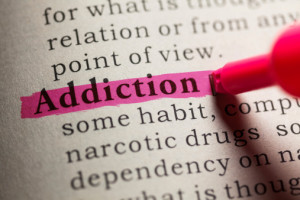Why Isn’t Sex Addiction an “Official” Diagnosis?
The Non-Diagnosis Diagnosis
The DSM-V—the “diagnostic bible” for psychiatrists and psychologists—does not include sexual addiction as an official diagnosis. The American Psychiatric Association, publisher of the DSM, has offered no explanation for this decision. In general, though, the primary arguments against the creation of an official diagnosis for sexual addiction fall into the following categories.
- Sex addiction is sex negative. This anti-sex addiction sentiment arises from a fear that sex addiction therapists will become the new “sex police,” imposing socially conservative values on sexuality, thereby creating a narrow version of sexual health. Sadly, there are therapists who misapply the sex addiction label for exactly this purpose, using it to marginalize and pathologize sexual behaviors that don’t mesh with their personal belief systems. Homosexuality, bisexuality, recreational porn use, casual sex, fetishes, and more have all been wrongly labeled as sex addiction by misguided clinicians.
 In truth, sexual addiction is unrelated to who or what it is that turns a person on. Instead, sex addiction is repeatedly and compulsively using the intensity of sexual experience to escape and dissociate from stress, emotional discomfort, and the pain of underlying psychological conditions like depression, anxiety, and unresolved early-life trauma. (This desire for escape and dissociation is also at the core of alcoholism, drug addiction, compulsive spending, compulsive gambling, and all other addictions.)
In truth, sexual addiction is unrelated to who or what it is that turns a person on. Instead, sex addiction is repeatedly and compulsively using the intensity of sexual experience to escape and dissociate from stress, emotional discomfort, and the pain of underlying psychological conditions like depression, anxiety, and unresolved early-life trauma. (This desire for escape and dissociation is also at the core of alcoholism, drug addiction, compulsive spending, compulsive gambling, and all other addictions.)
- Sex addiction treatment is an expensive scam. The simple truth is that therapists, no matter the specialty, earn a living helping people. The people who treat anxiety get paid for it. The people who treat depression get paid for it. And yes, the people who treat extremely personal and painful addictions get paid for it.
- Sex addiction is an excuse for bad behavior. Many people who get caught up in embarrassing and/or objectionable and/or illegal sexual behaviors attempt to use sex addiction as an excuse for what they’ve done, hoping to avoid or at least to minimize the judgment and punishment they might receive. Sometimes these folks really are sexually addicted, but just as often they are not. Either way, sexual addiction is NEVER an excuse for bad behavior. In fact, a major component of sex addiction recovery is admitting what you’ve done, accepting consequences, and making amends as best you can. Under no circumstances are sex addicts absolved of responsibility for the problems they have caused.
Reality Check
Regrettably, the APA has chosen to ignore the reality of sexual addiction, most notably the fact that as digital technology has increased people’s ability to affordably and anonymously access highly stimulating sexual content and willing sexual partners, the number of individuals walking into therapists’ offices and self-reporting problematic patterns of compulsive sexual behavior is also rising. In some respects the APA’s reluctance is understandable. There is always controversy and consternation before any inherently life-affirming behavior (sex, eating, sleeping, and the like) is clinically designated as pathological. It is absolutely correct to exercise caution in such matters so as to avoid turning moral judgments into psychiatric diagnoses (as occurred with homosexuality in earlier versions of the DSM). This does not, however, mean that we should avoid the treatment of glaring issues.
Simply put, the APA burying its collective head in the sand helps nobody. And this isn’t the first time the APA has been reluctant to move forward with a much needed diagnosis. For instance, it took the organization many years to officially acknowledge alcoholism and drug addiction. So did chemical dependency not exist before it was included in the DSM? Of course not. In similar fashion, the APA’s refusal to officially acknowledge sex addiction does not mean it doesn’t exist – it means more research, awareness and education are needed.